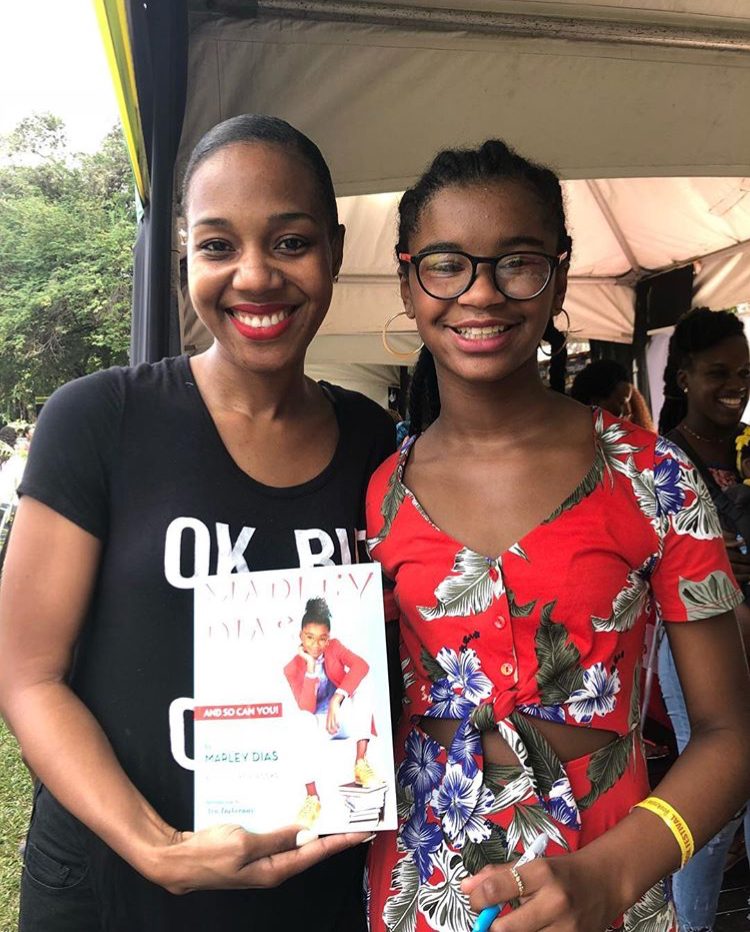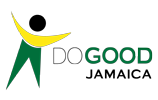Thirteen-year-old literacy activist and new author, Marley Dias, was in Jamaica last week for the Kingston Book Festival, where she was one of the event’s ambassadors. She became a global sensation in two years ago when her #1000BlackGirlBooks campaign went viral. The campaign, aimed at countering the predominant representation of “white boys and their dogs” in children’s literature, has long since passed the initial 1,000-book goal with more than 11,000 books collected—about half of which have been donated to schools and libraries in the United States, Greece, Ghana, Singapore and right here in Jamaica, where her mother was born and raised in Retreat, St Mary.
Her own book, Marley Dias Gets It Done – And So Can You, published by Scholastic this past January, recounts how the #1000BlackGirlBooks initiative got started and how it moved from idea to fruition. The book is also part how-to guide, aimed at encouraging her peers to find their passions and pursue them. Speaking at her book launch at the Kingston and St Andrew Parish Library on Saturday, Marley also shared several tips with the adults in the room—primarily parents and educators—on how they can provide more opportunities for the children in their care to truly flourish.
“In my long, long 13 years of life,” she quipped, “I’ve learned that in order to accomplish [our goals], kids need loving and caring adults. Adults are extremely important to elevating children.” She is certainly speaking from experience as her own parents, Dr Janice Johnson Dias and Scott Dias have been intentional and invaluable in helping her articulate and execute her vision.

Do Good Jamaica Director, Terri-Karelle Griffith-Reid at the book signing of Marley Dias’s new book at the 2018 Kingston Book Festival
Below, in her own words, are Marley’s five tips on how adults can help children “get it done”:
- Collaborate and work together. One loving adult is not enough to elevate children’s voices. Adults need to work with each other to help us. You must be our role models. Show us through your actions how collaboration looks, especially when it comes to literacy. You cannot tell a child to read if you don’t read at all. You can’t tell them to eat healthy and exercise if you’re not eating healthy and exercising. You need to create these true steps and these real examples about how to be better. Come together and build coalitions for girls and for children.
- Don’t treat us like adults but don’t treat us like little babies. You need to protect our childhood and nurture our growing adulthood. A big mistake I think adults make is that they want us to learn what it’s like to be an adult and sometimes they can be really hard on us. We are children and we need you to cuddle us a little bit and nurture our ideas. Protect us from the hard life of ‘adulting’. You don’t like ‘adulting’, so why do you want us to be adults? We are young and we are young in a time that’s different from when you were young. We want responsibilities and we want freedom, but we do not want to be just like you. Teach us how to be good adults while also helping us enjoy our childhood. As educators, this is really important. You often talk about responsibility and growing up, but please also remember that we are learning. Offer us chances to make mistakes.
- Use your resources. As you may know, the success of my work came from social media, so I’d like to give you a few tips on how educators can use this tool to help others learn. As know as older people–or “seasoned” people–you like Facebook. Use it to engage and inspire young people. Create a call to action with the steps that you are going to take. Show our joy and embrace our greatness. Elevate youth every single day. I think that adults forget that they were children, too. You want people to invest in children, you have to remind them why. Use friends from work or college or school to share these messages. It takes a lot of people to help change the world.
- Celebrate the diversity in our voices. Not all children are the same. Not all people are the same. We are everything and ambiguous and beautiful that way. Even today, people try to make us fit into a box and be one way.
- Share the stories of people in your community. Children need to see, meet and talk to people who are making an impact in their community. Local heroes matter. Sometimes, too much attention is focused on national leaders and we do not get to meet and talk to the people in our neighbourhoods who are making the difference. Neighbourhood heroes will help kids understand the beauty of people like them and it can also teach them how to use the lessons of their community to help others across the world. Focusing some more time on what happens inside of your community will help kids see and appreciate the power of where they are from and to share the experiences of people who came before us. Learning about the ways of others is a tool for children to take lessons and adapt these lessons and keep them forever.
Marley closed by sharing the heart behind her campaign—seeing true diversity and inclusion become a reality for her generation. “Inclusion leads to belonging and belonging makes greater equity. I focus on equity over equality. Equality is about making sure that everyone has the same thing, but we are not all the same and our needs are not all the same,” she explained. “Some of us are born with more resources and access to resources. This means that some of us need very little to be successful. Some groups, on the other hand, have always had a disadvantage. Their access to resources has been intentionally limited. They’ve experienced more struggles. These groups will need more. If we learn and understand these things, then we could create systems that recognize that some groups will need more and different resources than others. When we do this, we move closer to equity, and I believe equity means more and better outcomes. In schools, it means that more kids will read and more kids will grow and there will be fewer problems that teachers have to address.”
Check out our other articles in the series on Marley Dias on the blog.
‘Marley Dias Gets It Done’ And Empowers Other Students To Get It Done, Too.
‘Raising Marley: Nurturing A Literacy Rockstar’
Literary activist and author, Marley Dias, 14 chats with Alexandra Anderson, 13 in Kingston, Jamaica
Tracey-Ann Wisdom is a freelance writer and editor based in Kingston, Jamaica. You can find her online at www.writtenbytracey.com.
